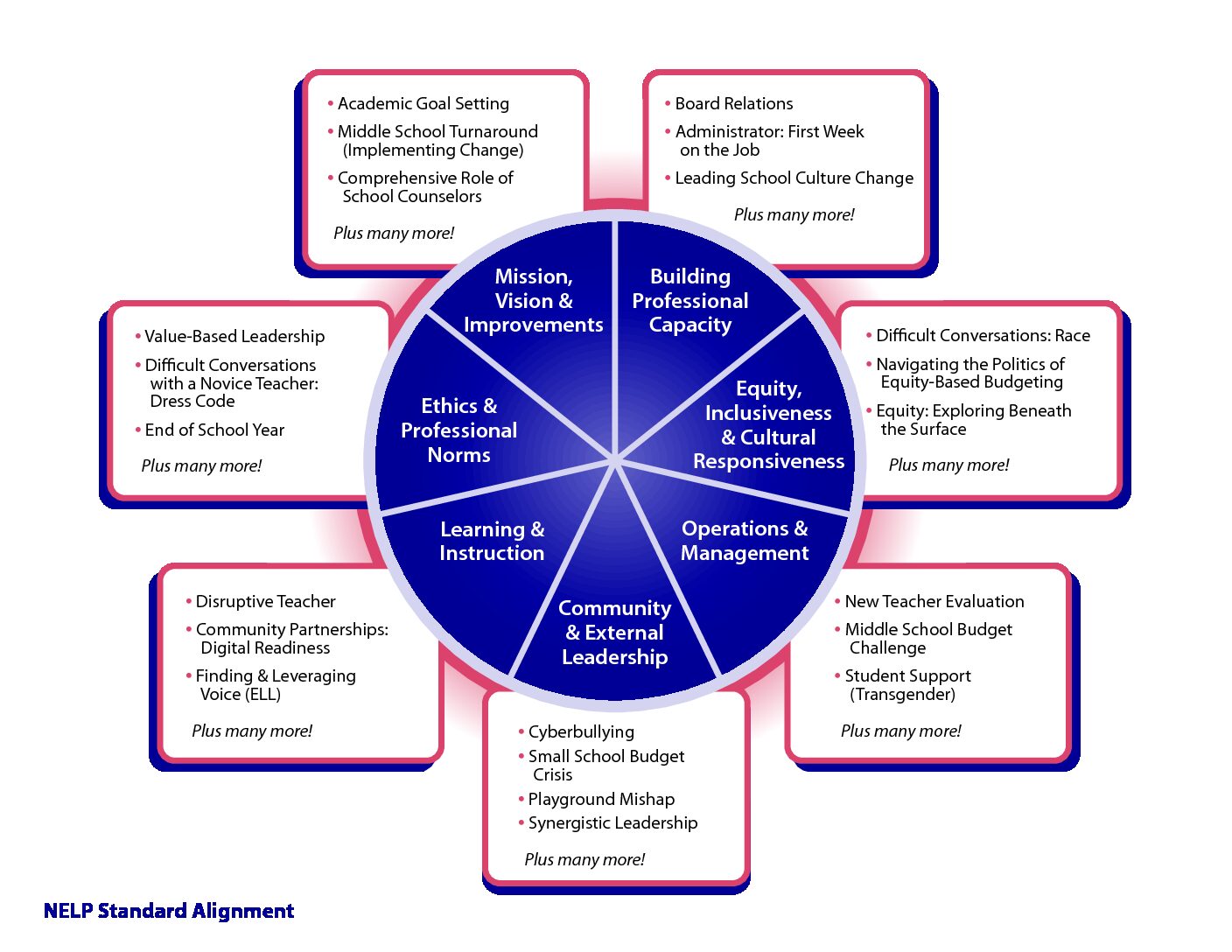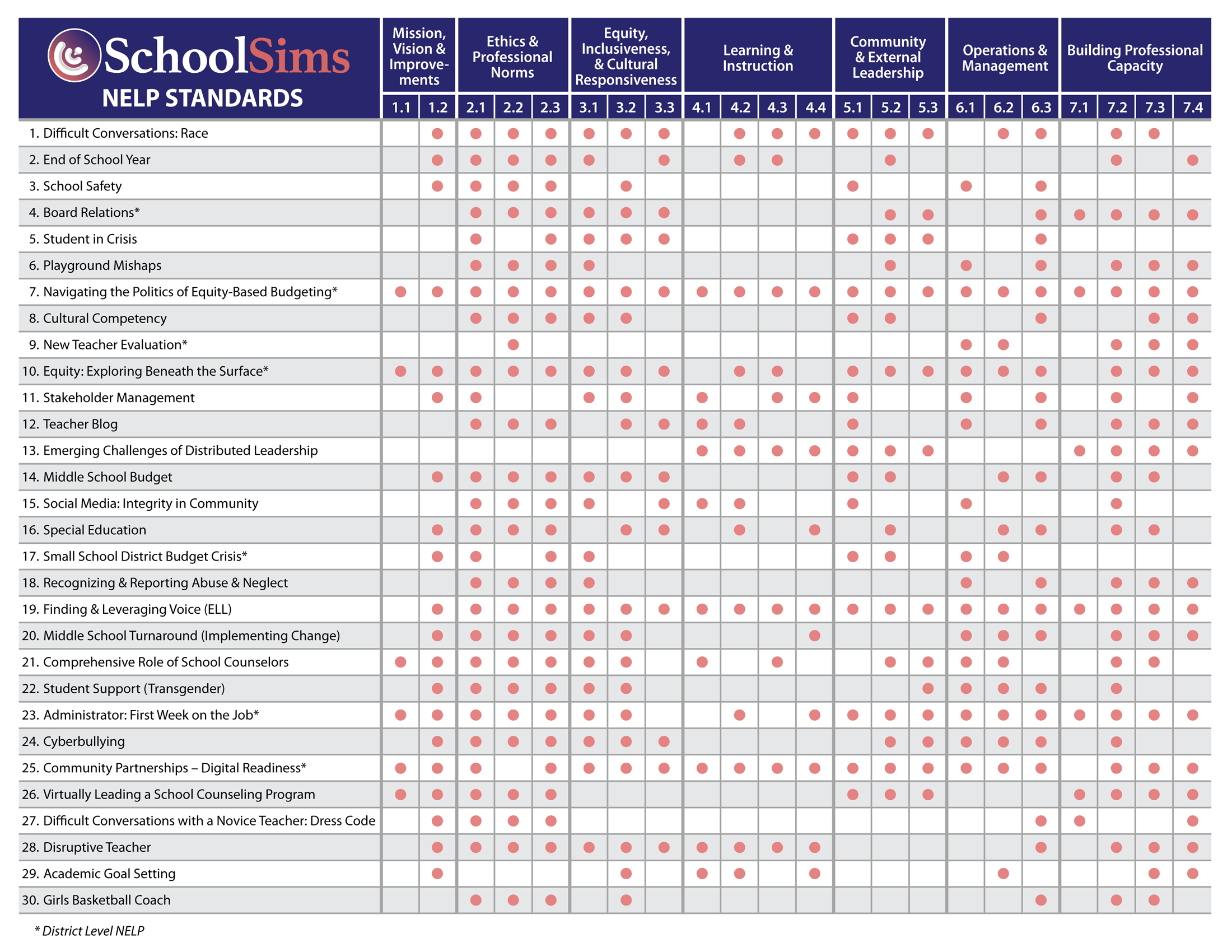SchoolSims are designed to align with NELP (National Educational Leadership Preparation) standards. Because simulations immerse participants in school-based scenarios like those that occur in real-life, they provide an opportunity to practice evaluating context and applying the appropriate standards in a risk-free environment. Leaders face circumstances where they are required to make a decision that may align with one standard but comes at the cost of another. While dealing with the blowback of those decisions within the simulation, leaders build the capacity and confidence to manage actual situations when they occur.
Download the Professional Standards Guide (Simulation Overviews) to learn more about our alignment with NELP Standards:
Here are some ways in which educational simulations, such as those provided by SchoolSims, may align with NELP Standards:
Scenario-Based Learning: Simulations often present real-world scenarios that educational leaders may encounter. These scenarios can be designed to address specific NELP Standards, allowing leaders to practice and apply the skills outlined in the standards.
Leadership Competencies: Simulations can be designed to target specific leadership competencies outlined in the NELP Standards. For example, scenarios may focus on instructional leadership, organizational management, or community engagement, aligning with relevant standards.
Decision-Making and Problem-Solving: Simulations provide opportunities for leaders to make decisions and solve problems within the context of the NELP Standards. This helps leaders develop practical skills and apply theoretical knowledge to authentic situations.
Reflection and Feedback: Many simulations include reflective components and feedback mechanisms. Leaders can reflect on their actions in alignment with the NELP Standards and receive feedback on their performance, contributing to continuous improvement.
Collaborative Learning: NELP Standards emphasize the importance of collaboration. Simulations can promote collaborative decision-making and problem-solving, addressing standards related to building relationships and fostering a positive school culture.
SchoolSims can be experienced in-person or virtually with large or small groups or can be deployed asynchronously. They can be incorporated into any leadership professional development program and included in university-based educational leadership curricula.

